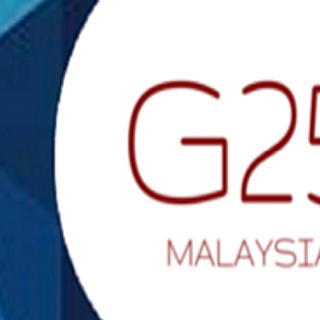G25 Statement on More Women Candidates Needed in the Parliamentary and State Assembly Elections
- G25 Secretariat
- Oct 25, 2022
- 3 min read
G25 hopes that GE15 will see more women candidates being fielded by political parties to contest in the parliamentary and state assembly elections. This will increase the percentage of women in the federal and state legislatures, reflecting a fairer representation of the female population in the highest institutions of government. As Malaysia is below the world trend in this aspect of balanced representation in the corridors of power, all political parties should nominate more female candidates for the elections to keep pace with the other countries in the region.
Malaysia is fast becoming a modern industrial economy, with the professional services becoming an increasingly important sector of employment, especially in the urban areas. Women are becoming increasingly prominent in the professional and educational sectors as they account for a higher share of the graduates from the higher education institutions. Most of the teachers are women and many women officers in the civil service and professional departments prove to be capable KSUs and DGs.
Women are advancing in their respective careers. As such, they should also be well represented in parliament and in the cabinet so that they can play a bigger role in all aspects of national development.
G25 is at the same time aware that the problems in society should not be compartmentalised into separate baskets for men and women. On the contrary, women’s problems should be seen as part and parcel of the national issues on growth and distribution. Thus, male MPs are equally capable of dealing with the problems women face, but women MPs can make a greater impact on arriving at the policy proposals with their close contacts at the ground level with women’s groups.
Housewives and teenage girls in poor households suffer a lot during flood seasons as many depend on trading and selling in the informal service sectors such as pasar malam and roadside hawker stalls to supplement the family income. Thus, the issues of environmental damage due to irresponsible logging, clogged drainage, poor maintenance of public facilities are matters of high priority in protecting the poor from the worst effects of flooding. Although there are women MPs bravely raising these issues, the impact will be greater when there are more women lawmakers in parliament to fight against those who ignore the environmental damage and its consequences on the poor as they make the money to enrich themselves.
In many Muslim countries, women are often being discriminated in their personal lifestyles, on the pretext of safeguarding their moral values against the influence of western cultures especially in dressing, music, and social gatherings. We are seeing these conservative male politicians emerging in Malaysian politics too trying to impose their views on Malaysian law. We need more women legislators speaking up to question the conservative groups in their efforts to turn the country back to the medieval styles of living. As seen even in neighbouring ASEAN countries, women leaders can be a force to protect the people’s fundamental rights and freedoms against all forms of discrimination.
Malaysia is a signatory to the UN Sustainable Development Goals. The SDGs recognise women empowerment as a high priority for growth with equity and justice for the population. In line with the SDGs, women representation in parliament and state assemblies must now be considered an essential requirement for our national development. Furthermore, by being part of a state party to the UN Convention Against All Forms of Discrimination Against Women (the CEDAW Convention); this should bring light to the government that the provisions of this UN treaty should be implemented as we move forward as a nation.
G25 Malaysia
Date: 25 October 2022





Comments